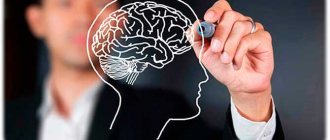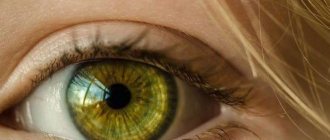People suffering from alcohol and drug addiction are unable to withstand stress. Along with the physiological characteristics of the disease, they are exposed to mental disorders that affect their mood and quality of life. Depression becomes one of the reasons why people return to intoxicating habits. Therefore, in complex treatment, it is necessary to pay special attention to psychotherapy, combining it with drug treatment for depression.
Psychotherapists at the Ultramed clinic will help you cope with emotional stress that arises in crisis situations. And also for those who cannot withstand the modern rhythm of life and resort to “folk treatment”, which entails an even more serious deterioration in well-being. It is recommended to seek help from a psychotherapist in the following cases:
- alcoholism
- addiction
- relative's illness
- death of a loved one
- loss or problems at work
- divorce or family problems
- communication problems
Call us now:
+7 (812) 454-00-50
Prices for Ultramed clinic services
No matter how much a person takes pharmaceutical drugs, it is impossible to do without consulting a professional narcologist. Only a psychotherapist is able to assess the problem (illness) and find the right way out of the current situation (including medication). An experienced specialist will help restore relationships at work and in the family, find a common language with people around you and restore the joy of a full life.
Ultramed clinic specialists provide consultation and treatment of the following mental disorders:
- long-term stress
- psychological problems
- depressive state
The result of working with a psychotherapist will be a new perspective on problem solving. A person will stop turning to alcohol to relieve stress or avoid difficult life situations. The psychotherapist will also advise the patient’s family members, tell them how to behave with him, how to restore harmony in the family and help a loved one on the path to getting rid of addiction.
Treatment of stress and depression: types of stress
The onset of a mental disorder is influenced by many factors. Situations that can traumatize the psyche arise in our lives all the time, and even strong people are not always able to resist them. Such stresses are divided into the following types:
- physical - caused by overwork and extreme external conditions
- metabolic - caused by diabetes, uremia, high blood lipids and obesity
- immune - associated with infections, against the background of a weakened immune system
- endocrine - occur with hyperactivity of the adrenal cortex and thyroid gland
It is important that stress does not become chronic. This is associated with the risk of physiological complications when stressor substances are produced in excess in the body. Lack of oxygen and nutrients negatively affects the functioning of the genitourinary system, intestines and liver. Vital organs such as the brain, heart and lungs are also affected. As a result, a person begins to get sick often.
We delve into the essence of the problem: why it is necessary and how to deal with stress
First of all, you should understand once and for all that stress is not a terrible monster that lurks around every corner, waiting for you with an ax at the ready. This is a completely normal physiological reaction of the body to external circumstances or situations.
In a stressful situation, blood pressure rises, consciousness becomes clearer, hormones begin to be actively released into the blood, all forces are mobilized to get out of the “risk zone” as easily and quickly as possible, and most importantly, with minimal “losses.”
Treatment of stress and depression: anti-anxiety medications
In the treatment of depression, drugs that differ in the active substance are used. They can be natural, plant-based or created in laboratory conditions, affecting brain receptors. An experienced psychotherapist will tell you which medicine to use in a particular case.
Antidepressants are divided according to the principle of their effect on the human body into the following types:
- stimulants
- balanced action drugs
- sedatives
Such drugs are sold strictly according to a doctor's prescription. They are used in cases where the patient experiences rapid heartbeat, anxiety, irritability and high excitability. Indications include lethargy, melancholy, apathy, suicide attempts and deep depression. Self-administration of antidepressants is prohibited.
Causes of depression
Causes of depression in women
Severe forms of psychogenic pathologies occur in female patients due to:
- genetic causes (presence of signs of any mental disorders in relatives);
- biochemical factors (the effect of hormonal drugs, the onset of menopause);
- external circumstances (conflicts with loved ones, dissatisfaction with personal life, lack of material resources);
- psychological determinants (low self-esteem, tendency to self-examination, dependence on the opinions of others, inability to adequately respond to stress and provocations).
Age factor
The causes of depression in women differ depending on the age of the patient. Girls going through puberty undergo dramatic hormonal changes. Teenagers aged 11-13 experience changes in appearance and personality problems. There is dissatisfaction with one's own weight, deviations in eating behavior (anorexia and bulimia). A separate reason for the onset of chronic depression is sexual violence from strangers, peers or relatives.
When young women reach reproductive age (18-40 years), they experience sudden mood swings. Their condition is often determined by the stage of the menstrual cycle. A girl may worry about the lack of children due to an unsettled personal life or infertility. Severe depression is observed after an abortion. The greatest likelihood of developing neurotic pathologies exists among patients who are subject to increased psychological stress and are characterized by emotional lability.
In old age, women are concerned about deterioration in appearance and weakening health, loss of a spouse and alienation of children, lack of communication and loneliness.
Causes of postpartum depression
Postpartum depression occurs in approximately 15% of women who have had a pregnancy. The risk of depression increases under the influence of:
- negative experience of a previous pregnancy associated with low qualifications of the maternity hospital medical staff, severe pain and a long recovery period;
- hereditary predisposition. If relatives have a history of psychological illnesses, women often suffer from nervousness and irritability;
- hormonal changes. During pregnancy, the level of estrogen and progesterone in the body increases. After childbirth, plasma concentrations of substances drop sharply. After about 3 days, the content of hormonal compounds in the blood returns to normal. The described abrupt changes cause a decrease in mood and a feeling of weakness;
- unrest. Experiences related to the fate of the child and problems in the family, a failed marriage, material or housing problems lead to sleep disturbances, a feeling of fatigue and physical fatigue;
- premature birth. Women often feel guilty about their inability to carry a child to term for the required period and consider themselves the cause of all diseases of the newborn baby;
- early discharge from the maternity hospital, lack of necessary knowledge and skills to care for infants;
- lactation disorders and milk stagnation, inability to breastfeed a newborn;
- negative changes in appearance associated with excess weight gain, the formation of stretch marks and decreased skin elasticity, deterioration in the quality of nails and teeth;
- violations of sexual relations. There is a temporary need to stop sexual intercourse, and the level of sexual desire decreases.
Causes of depression in men
Hidden prolonged neuroses are often observed due to:
- social reasons, for example, after dismissal from work or loss of business, deterioration of financial situation, family quarrels and conflicts, divorce or retirement;
- physiological abnormalities, including acute post-alcohol conditions (hangover);
- hormonal imbalances and decreased potency due to a natural decrease in testosterone levels, which is observed after reaching 40 years of age or occurs earlier in people who regularly drink beer;
- brain injuries, malignant and benign formations.
Treating Stress and Depression: Natural Medicines
If the stage of the disease allows, psychotherapists recommend taking herbal medicines. They are safe and have sufficient effect for treatment. Some of them are familiar to many from home medicine cabinets and can be purchased without a doctor’s prescription:
- Valerian tincture
- motherwort
- "Negrustin"
- "Persen"
- "Novo-Passit"
Valerian tincture copes well with the stress that haunts us every day. The drug contains a plant extract that helps slow the heartbeat and calm the nervous system. Valerian relieves insomnia by providing a hypnotic effect.
Motherwort has a contraindication - it should not be taken by people with hypotension. The drug has a sedative effect, relieves stress and anxiety, but helps lower blood pressure. Motherwort is effective in treating irritability and neurasthenia.
The drug "Negrustin" contains St. John's wort extract. The effect of this herb on the human body helps to increase efficiency and raise general tone. Negrustin is used in the treatment of mild depression.
"Persen" is a drug that relieves stress and anxiety. It contains a complex of herbal extracts that have a positive effect on a person’s emotional state: valerian, peppermint and lemon balm. In addition, Persen helps overcome irritability and normalize sleep.
The composition of the drug "Novo-Passit" includes extracts of the following medicinal herbs: motherwort, St. John's wort, valerian, lemon balm, passionflower, hops and black elderberry. It has the properties of the drugs described above and copes well with stress. Taking Novo-Passit not only improves your well-being, but also has a positive effect on sleep.
Introduction
An ailment whose cause should have long been found, similar to the English spleen, in short: the Russian blues took possession of it little by little; He didn’t want to shoot himself, thank God, but he lost interest in life altogether.
A.S. Pushkin
This book is dedicated to the scourge of our time - depression and stress.
These two states are the companions of a resident of a big city with its accelerated pace of life, a sea of problems at home and at work, and an unfavorable environment. Currently, depression is the most common mental disorder. It affects 10% of the population over the age of 40, of which two thirds are women. Among people over 65 years of age, depression is three times more common. Also, about 5% of adolescents aged 10 to 16 years are susceptible to depression and depressive conditions, and the overall prevalence of depression (all types) in adolescence ranges from 15 to 40%.
“I’m depressed,” “not life, but sheer stress,” we regularly hear from friends and acquaintances and we clearly see that they are not at all radiant with happiness. And it’s even worse when these troubles fall on us ourselves.
So what should we do then? Where to run? How to get rid of them? Who will help? Which doctor should I go to? Or maybe you can do without a doctor? What to do then? Some people hope for a miracle pill that will relieve all symptoms and restore peace and joy of life, others don’t want to hear about “chemistry” and are looking for folk or unconventional methods.
So which is better? And the best thing is to first find out what depression and stress are, when they require serious medical help, and when you can get rid of them on your own. And only armed with this knowledge, decide what to do next.
This is what our book is dedicated to.
Treatment of stress and depression: powerful drugs
In severe cases, after examination by a doctor, the patient may be prescribed potent anti-depression medications. They have a calming effect by acting on brain receptors. Some of the most common and effective drugs are:
- Nialamid
- Bethol
- Iprazide
- Trinylcypromine
- Dosulepin
- Selegilin
- Anafranil
- Incazan
These drugs are used strictly under the supervision of a doctor. They have many contraindications and side effects. When used independently, they can not only worsen the condition of a depressed person, but also cause serious damage to the body as a whole. As a result of non-prescription use of the above drugs, the patient may develop dependence (pharmacy addiction).
Treatment of stress and depression: psychostimulants and nootropics
Drugs in this category normalize the processes of thinking and remembering. They stabilize brain activity and increase its resistance to stressful situations. Treatment of stress and depression with the help of psychostimulants and nootropics can relieve the patient of lethargy, drowsiness and depression. With uncontrolled use (not under medical supervision) of drugs in this category, the following side effects may occur:
- tremor
- tachycardia
- sweating
- hypertension
- dry mouth
- headache
In modern psychotherapy, there are many names of psychostimulants and nootropics. Their use is due to the relief of depression and other mental disorders. If the disease is advanced, then you cannot do without the use of these potent drugs. In addition, psychotherapists recommend including a variety of relaxation programs in the treatment program:
- massage
- pool
- walks in the open air
Serious consequences of prolonged stress
Life in constant stress does not pass without a trace for a person. A stable increase in the concentration of glucocorticoids in the blood affects metabolism, the state of the cardiovascular system, and brain function.
What does stress lead to:
- Cardiac disorders.
- Skin diseases (eczema, psoriasis).
- Peptic ulcer of the gastrointestinal tract, gastritis.
- Depression, the appearance of suicidal thoughts.
- Obesity or, conversely, severe weight loss associated with anorexia (loss of hunger).
- Autoimmune diseases.
- Degradation of brain cells, decreased intellectual level.
Constant stress often leads to the development of addictions. A person gets rid of nervous tension with the help of alcohol, soft drugs, tranquilizers or sleeping pills. These methods help, but only until the effect of the drug wears off.
To avoid the serious consequences of prolonged stress, it must be treated.
If the reasons for your worries are known, you can try to solve the problem yourself. Otherwise, you need to seek help from a psychotherapist.
Treatment of stress and depression: tranquilizers (anxiolytics)
When depression provokes obsessive states, severe fears and unreasonable anxiety, tranquilizers are used in treatment. They are prescribed in short courses (1-2 weeks). Long-term use of such drugs is addictive and reduces the effectiveness of drug treatment.
Tranquilizers, in addition to restoring the nervous system and improving sleep, relieve seizures and relax skeletal muscles. The drugs are contraindicated in patients suffering from glaucoma. While taking them, you should not drink alcohol or anxiolytics (the latter under medical supervision). When combined with tranquilizers, anxiolytics can cause amnesia.
Below are some side effects when taking tranquilizers:
- drowsiness
- attention disorder
- constipation
- hypotension
- slow reaction
- urinary incontinence
- weakened libido
- breathing problems (even to the point of stopping)
Modern medicine uses the following drugs to treat stress and depression of a clinical nature:
- Chlordiazepoxide
- Diazepam
- Lorazepam
- Bromazepam
- Phenazepam
- Freesium
- Alprazolam
Symptoms of depression
Signs of the disease in women
Among the emotional manifestations are:
- feeling of despair, loss of meaning in life;
- depressed mood;
- internal tension and premonition of trouble;
- unreasonable fears, exacerbation of various phobias;
- chronic fatigue syndrome;
- guilt and self-blame;
- suicidal thoughts.
Physiological symptoms of depression are often referred to as:
- migraine;
- drowsiness and insomnia;
- increased fatigue;
- weight gain associated with stress eating habits;
- gastrointestinal pathologies, refusal to eat and constipation;
- loss of sexual attraction to the opposite sex;
- body discomfort, heart and muscle pain;
- feeling of suffocation, coughing attacks.
Symptoms of postpartum depression
Constant jumps in the level of hormones in the body of a young mother provoke emotional instability. Signs of a nerve disorder can be identified by:
- depressed state. Exacerbation is often observed in the morning and evening hours;
- increased emotional sensitivity and increasing irritability, causeless attacks of aggression;
- feeling of guilt. A woman cannot live peacefully after childbirth because she has lost her former attractiveness or the child has been diagnosed with severe congenital defects;
- memory loss, inability to concentrate, absent-mindedness, slowness and lethargy;
- excessive concern about the baby’s health, frequent visits to the pediatrician and other pediatric doctors;
- inability to enjoy joyful moments, loss of sense of humor;
- frequent complaints about one’s own health, obsessive search for signs of fatal diseases;
- feeling of hostility towards the baby. Some mothers believe that the newborn was switched or mixed up in the hospital.
Symptoms of depression in men
Depression in men occurs with certain characteristics; patients often experience:
- slow speech rate and detachment;
- significant weight fluctuations;
- the desire to escape reality by drinking or taking drugs;
- neck and back pain;
- lack of restraint towards people around you;
- intimate problems (erectile dysfunction);
- suicidal intentions.
Treatment of stress and depression at the Ultramed clinic
A large number of drug names presupposes knowledge of their properties and individual characteristics of the course of the disease. Based on the above information, you can understand that contacting a professional psychotherapist is the best way to find the right medication to treat stress and depression. Do not self-medicate - trust the professionals and do not delay visiting a doctor.
If you experience anxiety, nervous breakdowns or apathy, you should immediately contact a specialist to avoid the serious consequences of prolonged depression. Our clinic employs experienced psychotherapists who will help you get rid of stress and depression, even if it has become clinical. At the clinic, you will receive comprehensive treatment that takes into account the condition of internal organs affected by the influence of prolonged experiences and rapid heartbeat.
Call us and we will answer all your questions - the Ultramed clinic hotline is open around the clock, seven days a week, seven days a week!
How to get rid of stress and nerves
Treatment of permanent stress can be complex and lengthy, requiring daily work on yourself, your lifestyle and consciousness. To rule out serious consequences of long-term stress, you first need to be examined in a hospital. You can contact a therapist, cardiologist, endocrinologist, or psychiatrist, depending on the external manifestations of stress.
There are several ways to treat chronic stress; they are best used in combination:
- psychotherapy;
- auto-trainings;
- physical therapy, yoga;
- herbal medicine, aromatherapy;
- drug therapy.
Creative or scientific activities also play a very important role. They distract and mobilize the nervous system.
Treatment will be effective only when there is awareness of the problem and its root cause is known - the stress factor. It is not always possible to eliminate it; then work is done on the worldview in order to learn not to react to the stimulus.
Psychotherapy
With deep, protracted stress, you cannot do without professional psychological help. Working with a psychotherapist includes several areas:
- search for causes of stress, analysis of stress factors;
- diagnostics of the type of reaction to a stimulus;
- development of stress resistance.
Methods that help cure chronic stress and depression include gestalt therapy, cognitive behavioral therapy and hypnosis.
Hypnosis is the fastest way to get rid of nervous tension, but finding a good hypnologist is very difficult. For treatment using Gestalt therapy or cognitive behavioral therapy to be effective, the professionalism of a psychologist is not enough. The patient's self-discipline plays an important role.
Exercise to relieve stress
Each subject periodically experiences a feeling of anxiety and fear that something bad will happen soon. Constantly being in this state causes stress.
Since such sensations deprive individuals of peace and prevent their relaxation, as a result of which the body is in a constant state of tension, which leads to its exhaustion. Often the feeling of anxiety goes away on its own, but in most cases, people live with this feeling all the time.
Therefore, the answer to the question of how to get rid of constant stress, first of all, lies in changing your own lifestyle.
The way of life of modern society requires enormous stress from individuals, which often leads to increased nervousness and stress. It can be quite difficult to resist the challenges of progressive times and it is especially difficult for residents of megacities.
Fleeing from the oppression of responsibilities, the burden of the need to comply with a constantly improving environment, the unbearable burden of nervous tension, most people begin to take all kinds of medications, buying into the next advertised panacea, without a doctor’s prescription.
The use of tablets without prior medical consultation can aggravate the condition or provide only temporary and visible relief from nervous tension, which will invariably accumulate and subsequently result in a serious stressful condition.
Each individual has had moments in his life more than once when he felt overly irritable, filled with negative emotions, anger, when he felt broken and tired. To get rid of this condition, and in the future to avoid the accumulation of negativity, you need to know how to get rid of stress at work and not transfer it to your household in a few minutes at home?
When approaching home and feeling extremely irritable, it is recommended to go to the supermarket for a bar of chocolate, which promotes the production of the happiness hormone, as a result of which your mood will improve dramatically. Regular chocolate can increase the level of serotonin, which will cause a feeling of satisfaction, the endorphins produced will eliminate physical pain, and anandamide will give a slight euphoria.
In addition, an ordinary sincere smile will help you recharge with positivity in a few seconds.
To feel unburdened by a host of problems and worries, it is recommended to get rid of all the unpleasant things that are postponed “for later” in the daily “race”. The fewer items there are on the list of tasks “for later,” the freer the individual will feel.
If a person has fallen into depression, he must understand that he himself took all the actions to find himself in such a state. You need to look back and understand what a person did (or rather, what he didn’t do) to end up in a depressed state.
Understanding that depression is a result of your actions allows you to take control of yourself and begin to get rid of it. Since you yourself created your depression, it means that only you have the power to destroy it.
It is natural for the human body to experience stress. What it is? Psychologists call stress any change in the usual way of life. This is why stress can be both positive and negative. However, people usually talk about the negative effects of stress, so they look for ways to get rid of it.
Stress is the body’s natural reaction to external stimuli or changes. Giving birth can be stressful.
Getting fired from your job can be stressful. Even winning a large amount of money can be stressful.
In fact, everything that does not fit into a person’s usual existence is stress. If because of something a person has to stress, think, change himself, look for solutions, etc.
, which means he is under stress.
This condition is natural, since a person is always exposed to external influences. Why is it increasingly difficult for people to get rid of stressful experiences?
- Firstly, modern people perceive stress as a kind of negative state that must be gotten rid of.
- Secondly, a person cannot always understand the nature of stress, and therefore is not able to rid himself of it.
There are 3 phases of a person’s passage through stress. Often people get stuck in one of the phases. However, if you go through all 3 phases, then the stress will leave the person. This largely depends on the severity of the situation and the emotional balance of the individual himself. So, 3 phases:
- The first is anticipation stress, or pre-launch fever. This is a situation when a person is on the verge of something decisive, expecting something pleasant or unpleasant.
- The second is resistance to the situation, resignation to it, or a change in attitude towards what happened.
- The third is nervous exhaustion or physical fatigue. This phase occurs when a person cannot cope with the situation. Here it can lead to a nervous breakdown or prolonged depression.
Psychologists say that you should get rid of any kind of stress. This condition is a reaction, but not the usual position of a person. If an individual does not solve his problems, does not eliminate the causes of stress, then he gets stuck. It is exhausted both psychologically and physically, which leads to various diseases or depression.
There are two concepts of depression. One is a psychiatric condition caused by endogenous factors that are treated by psychiatric means (medications). It is recognized by bad mood, apathy, decreased physical activity and indifference. The look of such a person is empty, indifferent, “glassy”, there are no emotions. There are thoughts of suicide here.
Another type of depression is the condition that healthy people experience - the blues. If a person faces some external difficulties that he is not able to cope with, then long-term stress leads to depression. What external factors could these be?
- Paranoia.
- Neurotic state.
- Anxiety.
- Lack of physical or mental strength.
- Resorting to alcohol or drugs.
Bodily depression is a state into which a person falls (gets sick) and from which he does not want to get rid. The reason for this is receiving support and care from others, which is pleasant for a depressed person.
Subdepression is common - the absence of obvious clinical symptoms of depression, but it is a prerequisite for its development. It can be recognized by its long duration:
- Low mood.
- Weaknesses.
- Rapid fatigue and decreased performance.
- Lethargy.
- Pessimistic attitude.
- Doubts about one’s strengths and a happy future.
- The presence of fear and anxiety.
- Inability to make a decision.
- Lack of feeling of happiness.
The reason for the development of depression in modern people is:
- Loss of meaning in life. A striking example is the midlife crisis.
- Difficulties with adaptation.
- Worldview.
- Lack of adequate goals that can be achieved.
- Having conflicting relationships with important people.
Stress in a modern person is often caused by professional factors, the economic situation of the person and the country, the microclimate in the family, etc.
How to get rid of such conditions? Psychologists suggest starting with eliminating the causes that caused stress or depression. Here a person will have to admit to the presence of a certain problem that he could not cope with, accept his weakness in this situation, and even feel the need for outside help. Either the cause needs to be eliminated, or you need to accept it and come to terms with it.
Here it is necessary to know exactly the reason that caused the negative condition. It is also necessary to throw out the emotions that began to accumulate after an unpleasant situation. They should be thrown out, since they are precisely the factor that provokes a depressive state.
Physical work or sports is a useful outlet for energy, as well as an ideal way to distract attention. Any physical activity on the body, both when cleaning the house and while running, will help you relax a little and take your mind off the problem.
Anxiety is a state when a person is in a waiting position. Moreover, anxiety indicates that a person is thinking about something bad, unpleasant. For example, while expecting the birth of a child, a husband may think that something will go wrong and both his wife and baby will die. While waiting for the upcoming exam, the student thinks that he will not be able to pass it.
Prolonged anxiety leads to stress. As a result, a person gets stuck in this state for a long time. And the first thing psychologists advise is to understand that anxiety is directed towards the future. Anxious expectations may or may not come true. The future has not yet arrived, but a person is already waiting for something bad.
Nervous tension is almost a natural state of modern man. Every day everyone has to achieve something, chase something, fight for their happiness, etc. Some people start resorting to various medications that are supposed to relax them at the end of the day. Someone uses alcohol or drugs. However, all this does not relieve daily stress.
Psychologists recommend understanding the problems that cause a person to be on edge. After this, resort to techniques that help you relax mentally and physically:
- Yoga.
- Deep breathing.
- Dream.
- Walks in natural places: parks, squares.
- Taking hot baths with aromatic oils.
Change your view of what is happening, and then your nervous state will change. After all, it is a person who provokes nervousness in himself due to the thoughts that he scrolls through his head.
Stress tends to accumulate if you do not deal with it. Returning home every day, a person becomes more and more irritated and aggressive. This exhausts the nervous system, which can only recover during sleep. However, immediately after waking up the person becomes irritable again.
You should help yourself get rid of stress using the following techniques:
- Buy something sweet and eat it: chocolate, cake, etc.
- Free yourself from things that were imposed by other people. Often we take on things we shouldn't do. Unload yourself!
- Smile. If you can smile, it will relieve some of the tension.
- Drink black tea.
- Massage your head, ears or other parts of your body.











